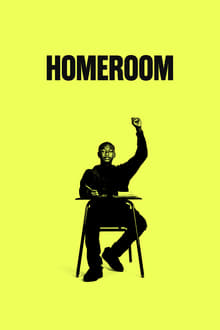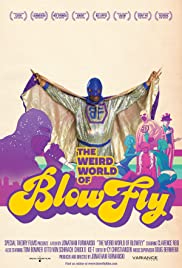
McLibel is a documentary film directed by Franny Armstrong for Spanner Films about the McLibel case. The film was first completed, as a 52 minute television version, in 1997, after the conclusion of the original McLibel trial. It was then re-edited to 85 minute feature length in 2005, after the McLibel defendants took their case to the European Court of Human Rights.
You May Also Like

The story of artist Lil Peep (Gustav Åhr) from his birth in Long Island and meteoric rise as a genre blending pop star & style icon, to his death due to an accidental opioid overdose in Arizona at just 21 years of age.

This documentary features the band performing their favourite classic Disney tracks, along with information on Perfume’s life stories, their passion for music, giving details of their favourite Disney memories and much more.

Ben Fogle spends a week living inside the Chernobyl Exclusion Zone, gaining privileged access to the doomed Control Room 4 where the disaster first began to unfold.

Following the class of 2020 at Oakland High School in a year marked by seismic change, exploring the emotional world of teenagers coming of age against the backdrop of a rapidly changing world.

Documentary about the making of the 1996 horror-comedy.

Clarence Reid is a musician who wrote and produced romantic and spiritual songs for some of the greatest Southern soul and R&B acts of the 1960s and ’70s. He is also the gonzo performer Blowfly, Clarence’s freaky alter ego and the original X-rated rapper. “The Weird World of Blowfly” explores both sides of this hilarious and controversial artist, providing a rare, inside peek at the infamous linguist’s daily life. Now 69-years-old, with a gold-spangled superhero costume and a catalog of the world’s raunchiest tunes, Blowfly tours the world, still struggling for success and recognition after 50 years of making music. The film highlights both Clarence’s and Blowfly’s unique contributions to music history, including Top-10 R&B hits and what might be the world’s first rap song, recorded in 1965.

Not Available right now

In June 2013, Laura Poitras and reporter Glenn Greenwald flew to Hong Kong for the first of many meetings with Edward Snowden. She brought her camera with her. The film that resulted from this series of tense encounters is absolutely sui generis in the history of cinema: a 100% real-life thriller unfolding minute by minute before our eyes. Poitras is a great and brave filmmaker, but she is also a masterful storyteller: she compresses the many days of questioning, waiting, confirming, watching the world’s reaction and agonizing over the next move, into both a great character study of Snowden and a narrative that will leave you on the edge of your seat as it inexorably moves toward its conclusion.

Director Martin Scorsese speaks candidly and passionately about one of his formative filmmaking influences: the late Elia Kazan. Utilizing precisely chosen clips from Kazan’s signature films including “On the Waterfront,” “A Streetcar Named Desire,” “Gentleman’s Agreement,” “Baby Doll,” “A Tree Grows in Brooklyn,” “A Face in the Crowd,” “America, America,” and “The Last Tycoon,” and interview footage of the director himself, co-directors Scorsese and Kent Jones recount the director’s tumultuous journey from the Group Theatre to the Hollywood A-list to the thicket of the blacklist. But most of all, they make a powerful case for Kazan as a profoundly personal artist working in a famously impersonal industry.

Follow freestyle skier Marie Martinod as she returns to the sport after giving birth, with the goal of finding victory at the 2014 Winter Olympics.

The epic life story of Alice Guy-Blaché (1873–1968), a French screenwriter, director and producer, true pioneer of cinema, the first person who made a narrative fiction film; author of hundreds of movies, but banished from history books. Ignored and forgotten. At last remembered.

She’s been around for so many decades but hasn’t aged a day. She’s had more than 180 different jobs; she’s been president, she’s been to the moon, and she’s done all the things that women aspire to do. She has a massive closet, and thousands of different outfits. Barbie is way more than just a 12-inches long piece of plastic, she is way more than a toy. The legendary blond bombshell has grown into a phenomenon and a children’s sensation. Wildly revolutionary, Barbie broke barriers, shattered glass ceilings, and has inspired countless dreams, wonder and imagination, with her signature color: Pink. The history of the doll is a testament to its enduring appeal and impact. Things have changed for her the same way things changed for women. Whatever we may think about Barbie – love or loathe her – it is impossible to ignore her worldwide impact. Let’s step into the beautiful world of Barbie and take a look at her cultural revolution through the decades.